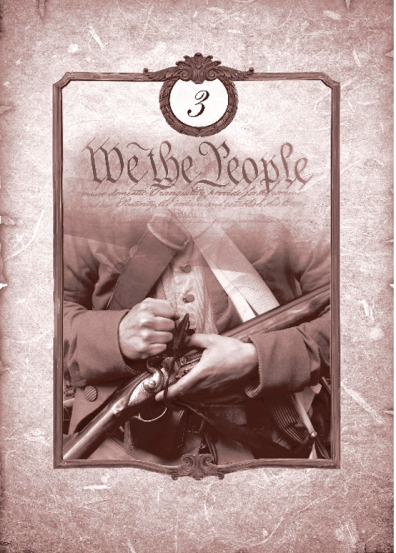Will taking away our guns keep us safe? Hardly! As one woman recently said, ‘How does leaving me defenseless, make me safer?” Good point!
The following article was published in the Daily Herald, Provo, Utah, in January,
2013. Read it to learn about about “soft targets”, America’s resting militia,
and human nature.
Staying Safe in
America
Pamela Romney
Openshaw
Americans are appropriately dismayed
about recent infringements on their second amendment rights. The pros and cons
of private gun ownership are debated loudly, leaving people confused about the
basic arguments and asking for clarification of the core issue. That core issue
is this: the inalienable right to keep ourselves safe carries with it the
intrinsic right to own weapons of protection.
Government officials currently argue that the Second
Amendment does not apply to the right of citizens to bear arms. This absurd
position is blind to reality and ignorant of mankind’s history. Individuals have always understood personal protection
as a responsibility and a right. Who can better protect us than we, ourselves?
No army, police force, or hired enforcer can care enough to offer the safety we
provide for ourselves when threatened. A government that would deny gun
ownership to its citizens denies them the right to protect themselves and their
families.
How can one find protection without owning modern
weapons—most especially, guns? The answer is that he cannot. A knife is no
deterrent—it requires that one be within arm’s reach of the assailant. Neither
can bows and arrows, bullwhips, or firecrackers. Without a gun, one is likely
left with the kitchen spatula for defense—hardly a threat to an assailant!
In colonial America citizens were obligated to own and
operate protective weapons. Patrick
Henry said: “A well regulated militia, composed of gentlemen and freemen, is
the natural strength and only security of a free government . . . The great
object is that every man be armed.” Richard Henry Lee, another prominent Founder,
wrote: “To preserve liberty it is essential that the whole body of the people
always possess arms and be taught alike, especially when young, how to use
them.” Early American men formed a
resting militia—a resounding barrier against threat or aggression. So serious
was this obligation that the U.S. Militia Act of 1792 required all able bodied
male citizens between the ages of 18 and 44 to keep weapons on hand. Adulthood
meant responsible weapons use and control.
The world has not changed. Human nature still leads
the powerful--those with weapons--to usurp the rights of the weak—those without
weapons. Without weapons, citizens become “soft targets”; easy prey for the
malevolent. It is not the use of the weapons that deters crime, but the possibility that they can be used. If resistance is possible, the
criminal is less likely to act. Thus, increasing gun ownership in the populace
reduces overall crime rates by reducing the number of soft targets.
Australia’s experience offers a chilling example of citizen
safety in relation to personal gun ownership. Though gun violence in relatively
safe Australia had been trending downward for decades, the government banned
private gun ownership in 1996 after a violent shooting episode. Crime
rates--murders with guns, gun assaults, and armed robberies--rose. Of greater
concern was the dramatic increase in home burglaries, with accompanying
assaults on the defenseless elderly. Criminals knew that homeowners had lost
the means to challenge them and gun crimes surged. Meanwhile, the development
of a thriving black market made it harder to control crime.
Gun control does not curb crime. Senator Orrin Hatch (R-Utah), chairman of the Senate subcommittee that investigated, then issued the 1982 report entitled The Right to Keep and Bear Arms, explained the investigations's findings: "If gun laws...worked, the sponsors...should have no difficulty drawing upon long lists of examples of crime rates reduced by such legislation. That they cannot do so after a century and a half of trying...establishes the repeated, complete, and inevitable failure of gun laws to control serious crime.
Nor does gun control stop the lawless. Those that want the criminal
life will find it. While disarming law
abiding citizens is easy, there are few things more difficult than disarming
the lawless, especially with many guns already available in society.
Private citizens must not be left defenseless, their basic
safety in jeopardy. We must retain the right to keep and bear arms.
- Pam

No comments:
Post a Comment